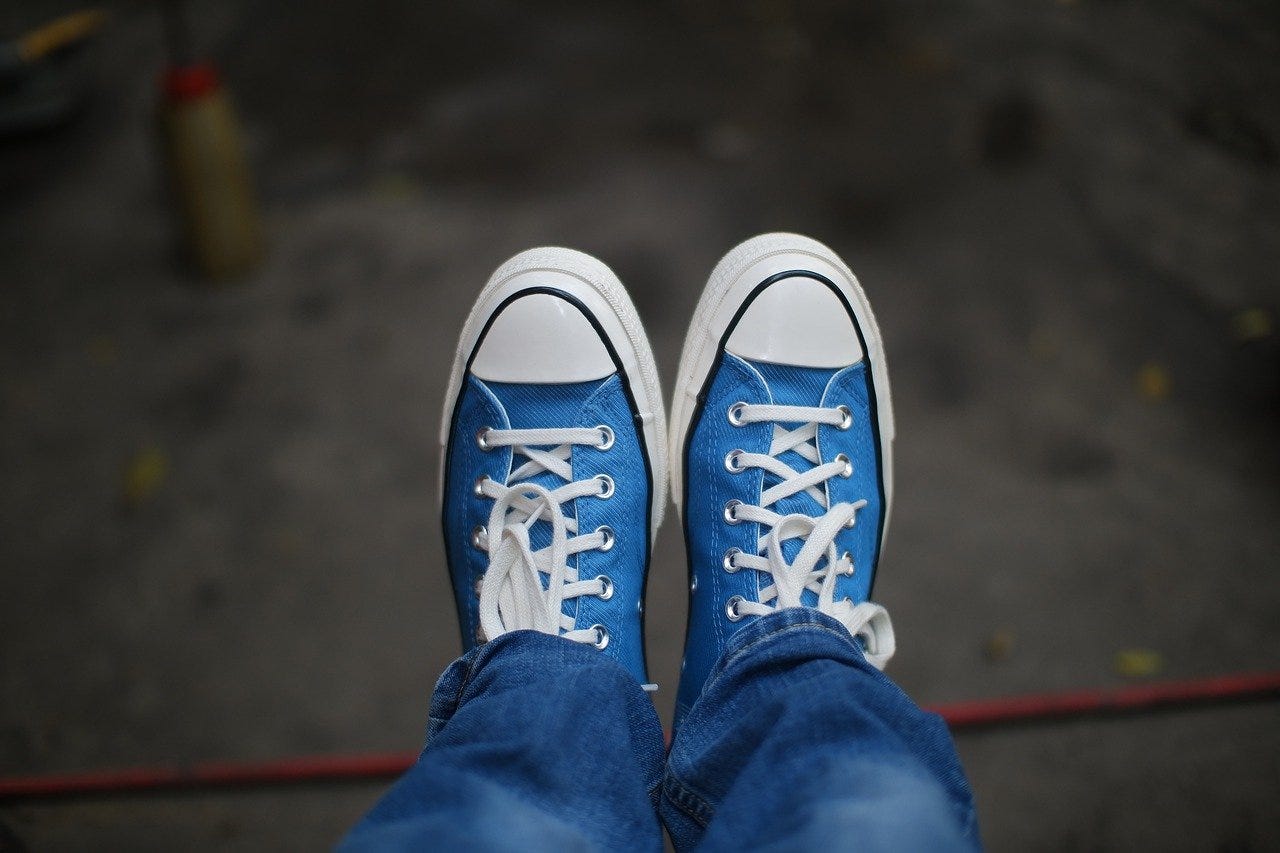The Start
Where I am and how I got here
“If I tell Rachel to turn right, she’ll turn left”.
I think my dad could be forgiven for thinking that my rather stern geography teacher had decided that I had a bad sense of direction, was infuriatingly stubborn, or both.
Fair enough, as I had form on both counts, but after retreating to his study, my father gave the matter the detailed level of thought lawyers do and realised that I was neither. I was just naturally inquisitive and wanting to explore what I might miss if I followed the herd. And for the next forty years he did his best to encourage me to continue to be just that. Nearing the end of his life, with Parkinson’s disease ravaging his speech, he still enjoyed sparring with me on the merits of some recent political fallout or a work dilemma. More of that later.
Throughout my life the tale of that parents’ evening has never faded. Along the way it has been joined by plenty more and together they have run like some kind of magical thread through my experiences to give me a point of reference to who I am and a sense of future direction.
There is a common theme to my life, and it is not being afraid to use innovative ways to push beyond the status quo, thinking about everyone including people of the future, not just the few and now. Over the coming months I will be sharing some examples of what that looks like, and I’m excited to have you on that journey with me, so please do subscribe to this new Substack newsletter. I can promise not to spam you, but to share my thoughts, ideas and musings on life, the universe, and anything else that sounds interesting.
You see, due to many circumstances combining, I today find myself in completely new territory. Turning again in a new direction that, for the first time, found me.
Within the space of the last 12 months, three things happened. I turned 60, I was diagnosed with two cancers - breast and melanoma which were completely unrelated - and I left a job I had loved. None alone defines me but each has made me question who I am and fear that I am losing my voice, so it’s the cumulative effect.
However, I hang on to the sensible words of one of the many incredible doctors I’ve met over the past year, that the Rachel going into this (this being seven months of chemotherapy) might not be the Rachel that comes out of it. So true.
My career spanning law, social justice and science, has taken me around the world. I’ve seen the upheaval as well as positives in people’s lives through political, economic and social change. From the early days of working in the post-apartheid hope of South Africa, the free markets in the late 1980’s globalisation, to unwisely deciding to hitch lifts to meetings around Moscow just after the collapse of the Soviet Union, and much more sensibly persuading governments to fund science research and technology solutions so we can all somehow manage to live on this fragile planet. I’ve also stayed closer to home, taking organisations through times of change, finding realistic paths towards environmental, social and economic sustainability, and campaigning to change the stereotypes, systems and political decisions that hold too many people back from finding their own threads through life.
Like most of us in some form of leadership role, and let’s not confuse fancy job titles with what it really means to be a leader, I have seen society dynamics shift, sometimes naturally and more often as the result of big events beyond the control of the lives they most affect.
So, how can we inspire people around us to be part of exploring, tackling problems and finding solutions?
I’ve always believed that to flourish as a society we have to look in other directions, be that inquisitive 12-year-old, and allow our minds to go wider and deeper into the parts of society well beyond our immediate horizon to explore a world of different thoughts, ideas, fears and hope. I’ve seen this lead to incredible progress through my work to find common goals in climate science collaboration between the UK and East Africa. But it’s all easier said than done when society seems so determined to hand sensible evidence informed public debate over to the extremes of political rhetoric and social media, with people taking quick offence at a difference of opinion.
I recommend a very good book on this subject called After Nativism - Belonging in an Age of Intolerance by Professor Ash Amin, ironically a Professor of Geography.
When I’m asked to describe my career, I hesitate to use “EDI” or “ESG” because I’ve always had this sense that if it can be easily turned into an acronym, it can also pigeonhole and it takes a long time to unwrap yourself from that role and the image it has for others. I prefer to describe things in my own words.
So here I am, trying something new and feeling more alive than ever. Six months ago, I didn’t know Substack existed. I stumbled across it and I lurked around for a while and slowly felt it could be the safest of places to find my new voice by drawing together the threads and sharing the lessons I’ve learned from my life and career, and opening up to the experiences of others. I suspect it will evolve over time, and maybe that’s a good thing, so I remain open and will endeavour to avoid over-thinking, often a result of a fear of getting it wrong. It might turn out that what I’m embarking on with you all here will turn out to be the biggest exploration of my life.
Whatever direction we take, I hope you will join me in challenging our thinking about the future of our world and how we can inspire and support the people around us to be part of creating positive change. I’m sure we’ll also be open to finding the absurd, adding in a hefty dose of humour and I promise to explain how a pair of shoes can shape who you are.
I think I’ll do an entire post on that last one.



